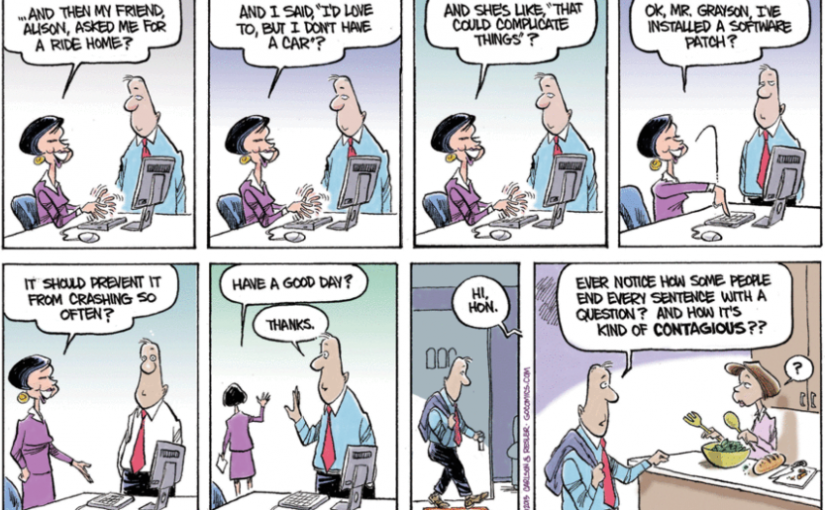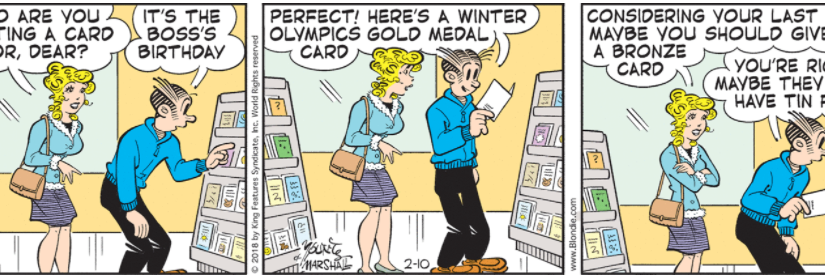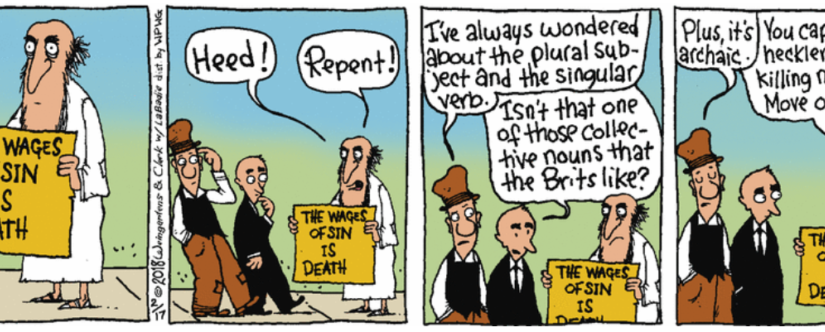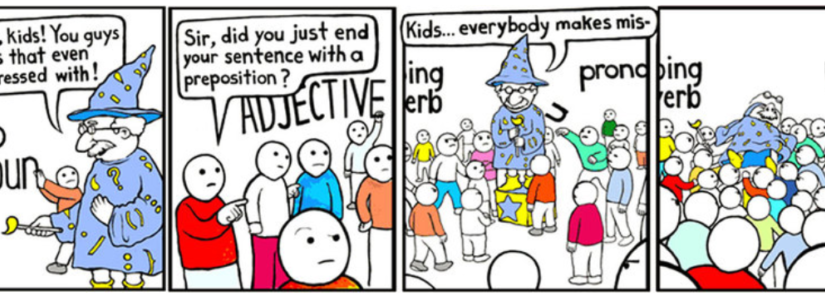The two regular readers of this humble site probably recall that I studied Greek in my youth. When I saw the first panel of this strip, I thought of something that had not occurred to me in all these years. Was the verb plural to go with wages, or is it singular to go with death? So I rushed to the original of the passage quotes on that sign, Romans 6:23. Then I read the rest of the comic, to discover that the comic was about that very topic! Here’s the comic, Barney & Clyde: Okay, here’s what I found out: In Greek and many other languages, it’s okay to leave out the verb “to be” in any of its many forms, and that’s what Paul of Tarsus did here. Basically, he wrote, “The wages of sin—death!” I’d be curious to know what he would have written if he had included the verb, but since it’s perfectly idiomatic to leave “is” and “are” out, I’ll bet he didn’t even consider including it. I’ll add, since we’re talking about Greek grammar, “sin” is singular, and there’s a rule in Greek and Latin called attraction, where a word picks up a form from the word that precedes it, regardless of the precise grammar. So maybe that’s why the translators felt comfortable using the singular verb in English, to go with the singular “sin.” And, as the comic suggests, “wages” is a collective noun, so you can treat it as a singular.
Okay, here’s what I found out: In Greek and many other languages, it’s okay to leave out the verb “to be” in any of its many forms, and that’s what Paul of Tarsus did here. Basically, he wrote, “The wages of sin—death!” I’d be curious to know what he would have written if he had included the verb, but since it’s perfectly idiomatic to leave “is” and “are” out, I’ll bet he didn’t even consider including it. I’ll add, since we’re talking about Greek grammar, “sin” is singular, and there’s a rule in Greek and Latin called attraction, where a word picks up a form from the word that precedes it, regardless of the precise grammar. So maybe that’s why the translators felt comfortable using the singular verb in English, to go with the singular “sin.” And, as the comic suggests, “wages” is a collective noun, so you can treat it as a singular.
It’s a good punchy way to get the message across, though, isn’t it?





 Okay, here’s what I found out: In Greek and many other languages, it’s okay to leave out the verb “to be” in any of its many forms, and that’s what Paul of Tarsus did here. Basically, he wrote, “The wages of sin—death!” I’d be curious to know what he would have written if he had included the verb, but since it’s perfectly idiomatic to leave “is” and “are” out, I’ll bet he didn’t even consider including it. I’ll add, since we’re talking about Greek grammar, “sin” is singular, and there’s a rule in Greek and Latin called attraction, where a word picks up a form from the word that precedes it, regardless of the precise grammar. So maybe that’s why the translators felt comfortable using the singular verb in English, to go with the singular “sin.” And, as the comic suggests, “wages” is a collective noun, so you can treat it as a singular.
Okay, here’s what I found out: In Greek and many other languages, it’s okay to leave out the verb “to be” in any of its many forms, and that’s what Paul of Tarsus did here. Basically, he wrote, “The wages of sin—death!” I’d be curious to know what he would have written if he had included the verb, but since it’s perfectly idiomatic to leave “is” and “are” out, I’ll bet he didn’t even consider including it. I’ll add, since we’re talking about Greek grammar, “sin” is singular, and there’s a rule in Greek and Latin called attraction, where a word picks up a form from the word that precedes it, regardless of the precise grammar. So maybe that’s why the translators felt comfortable using the singular verb in English, to go with the singular “sin.” And, as the comic suggests, “wages” is a collective noun, so you can treat it as a singular.
 The error is made by both the students and the, um, professor, and the error is promulgated by lots of stuffy English teachers, so it’s fairly common.
The error is made by both the students and the, um, professor, and the error is promulgated by lots of stuffy English teachers, so it’s fairly common.